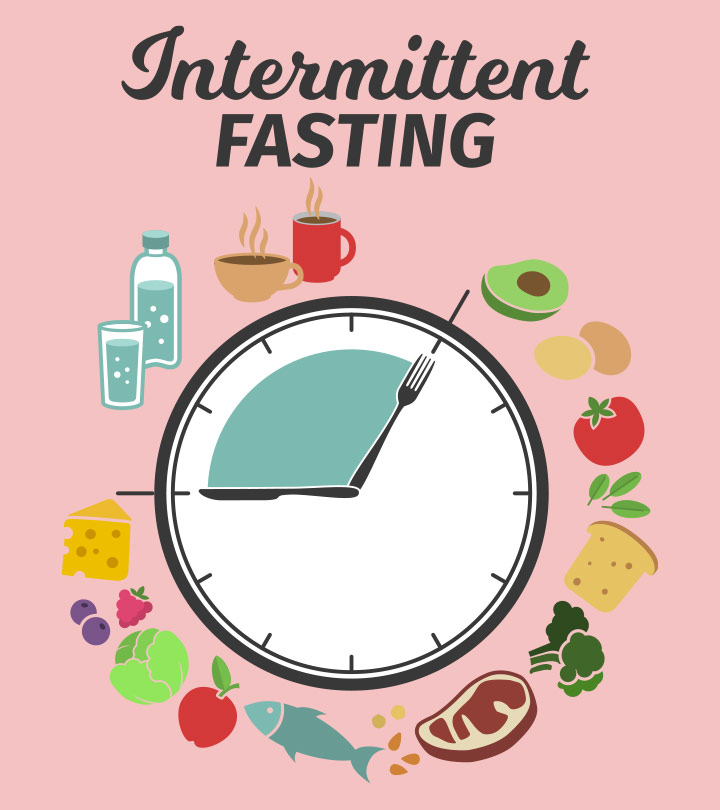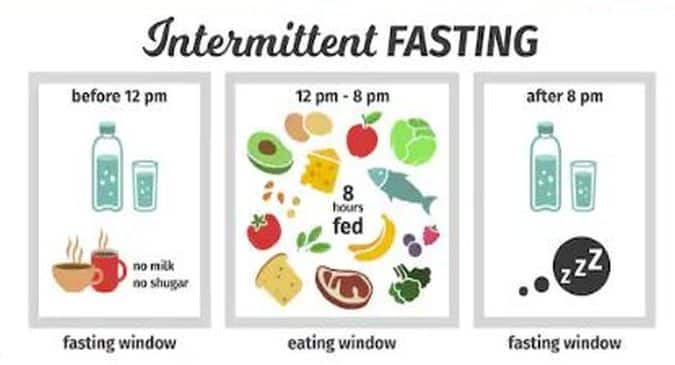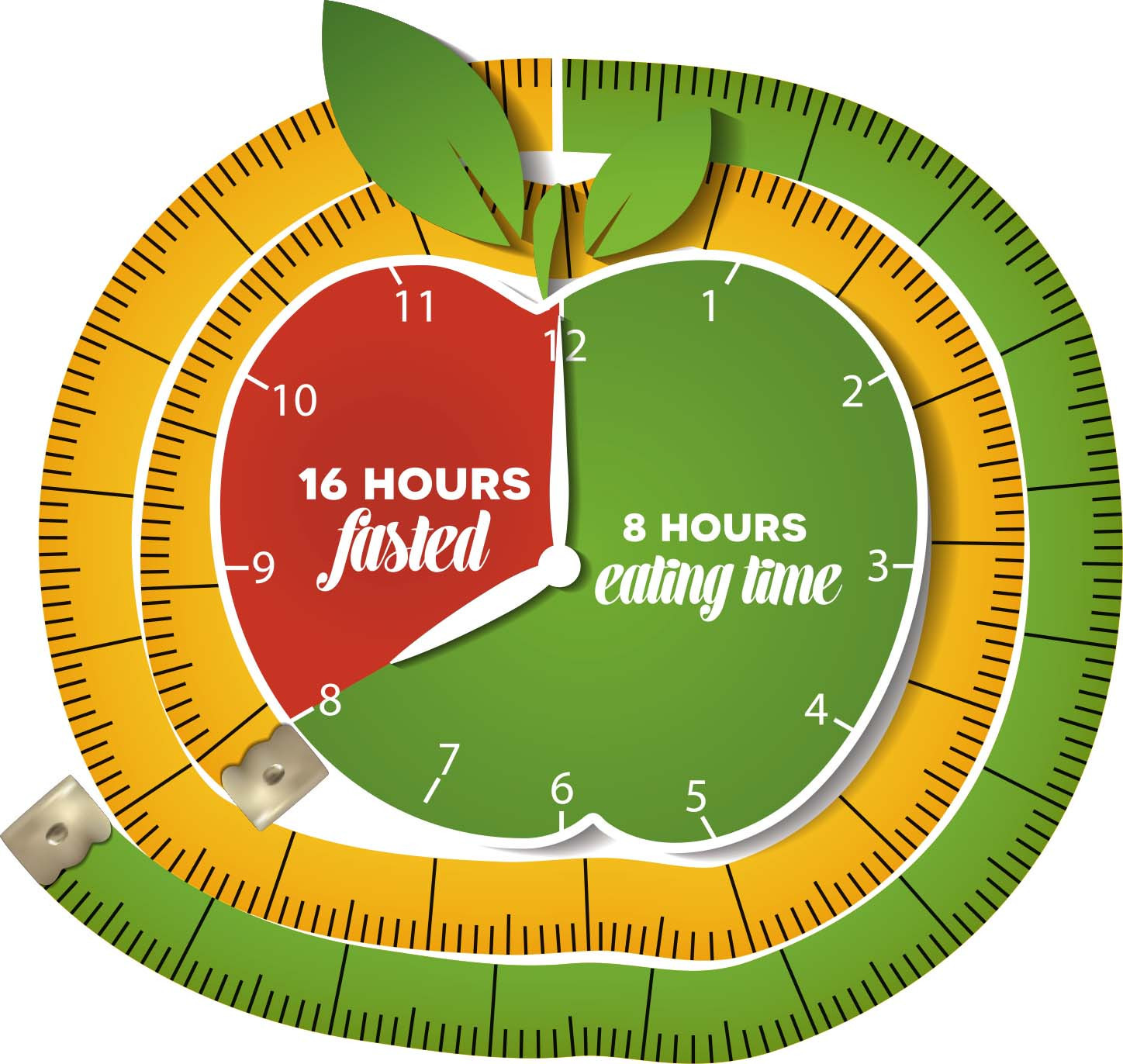Call it a New Gen trend or a healthier style of living. Intermittent fasting is one of the most popular diets in which people are adapting to stay fit and healthy. Intermittent fasting is a cycle of fasting and eating alternatively, which restricts calories intake and requires extended periods of fasting. The extended period of not eating can be different as per the IF programs that are for a few hours, some for certain meals of a day, some fasting for a few days each week, some fasting for different days each month.

Let’s understand the types of Intermittent fasting in brief.
The 16/8 method


As the name suggests, this method involves eating for 8 hours and fasting for the other 16. This doesn’t mean eating continuously for those 8 hours. It means eating for 8 hours schedule of the day, and abstain from food for the remaining 16 hours. For example, the 8 hour window is 12pm-8pm, where you skip your breakfast and eat a brunch sort of meal at 1pm-2pm and take dinner before 8pm directly. You will continue fasting for the remaining 16 hours, without food, on water or other no-calorie drinks like plain tea or coffee. A person can start practicing this once or twice a week to everyday as per their preferences.
The 5:2 method
A popular approach where a person eats normally for 5 days a week and fast or eats up to 500 calories (women) and 600 calories (men) for the remaining 2 days. This is one of the most convenient method of intermittent fasting for beginners. A person can eat a normal diet for the 5 days, keeping in mind the maximum calories intake if required and suggested.
Alternate day fasting
Also known as On and off fasting. While this is not a common approach to intermittent fasting, people adapt this as a part of their fasting schedule. It’s an approach where a person eats a normal diet on one day and avoids eating or has one meal (less than 500 calories) the next day and again eats normal the third day.
Spontaneous meal skipping

A common type of intermittent fasting where people skip any meal of the day. They don’t feel hungry and eat normally the next one. For example, every person is aware of his/her body type and has an idea about which skip he/she can skip, and they skip the meals. Many people avoid dinner as a part of their full day meal.
OMAD
OMAD – One Meal A Day.

Fasting for 23 hours and eating one large meal for the 1-hour period is OMAD. Though it is common for people fasting in Indian households, we do not recommend it for the beginners and absolutely not for daily diet routine as it may harm the body system.
Why should you do intermittent fasting?

Fasting is a choice and not a compulsion. It’s absolutely up to the choice of person to adapt intermittent fasting and any approach of IF program. A person can decide whether to adapt practice of intermittent fasting through its benefits and drawbacks.
Benefits of Intermittent fasting,
- Weight loss
However, there are several benefits of intermittent fasting, weight loss is the prominent one. People with heavy weight or in desire to lose weight adapt intermittent fasting, as it is highly effective. The 16/8 approach is the most common approach adopted for weight loss. Researchers suggest IF approaches for treating obesity and obesity related conditions.
- Boost energy and longevity
A study founds that IF lasting from 12 hours to 48 hours and adapted weekly has potential power to prevent and treat diseases. It also boosts energy and fitness in body and provides longevity.
- No food restrictions
A person can eat anything they like of intermittent fasting first, as they made the restrictions on when to eat and not on what to eat.
Drawbacks
- Lack of scientific approaches
Though many researchers have researched on different IF programs and trusted it to be good for weight loss, studies are still seeing if it is safe to adapt and if it can treat obesity properly.
- Unhealthy food habits
While people will fast for an extended period, the craving for unhealthy and junk food can increase, and this could lead to unhealthy food habits.
- Improper guidance
The trend of intermittent fasting is taking storm, but satisfying a nutritional need in a body is important in intermittent fasting and people avoid this while adapting intermittent fasting to be a part of the trend or to lose weight quickly. We suggest referring to nutritionist and dieticians before practicing new food trends.
Conclusion
Intermittent fasting is a healthy choice if we adapt it appropriately and can be harmful if not. We suggest following guidelines and consultation with nutritionists before such adaptions. And always try to avoid junk and unhealthy food habits to practice any new food trend and diet in the market. Understand your body needs, take a balanced diet and stay fit and healthy.
For Personalized tips on intermittent fasting contact us – Contact Us – Dt Suman
Follow us on Instagram to get daily health tips – https://instagram.com/sizespecialistbysuman/




